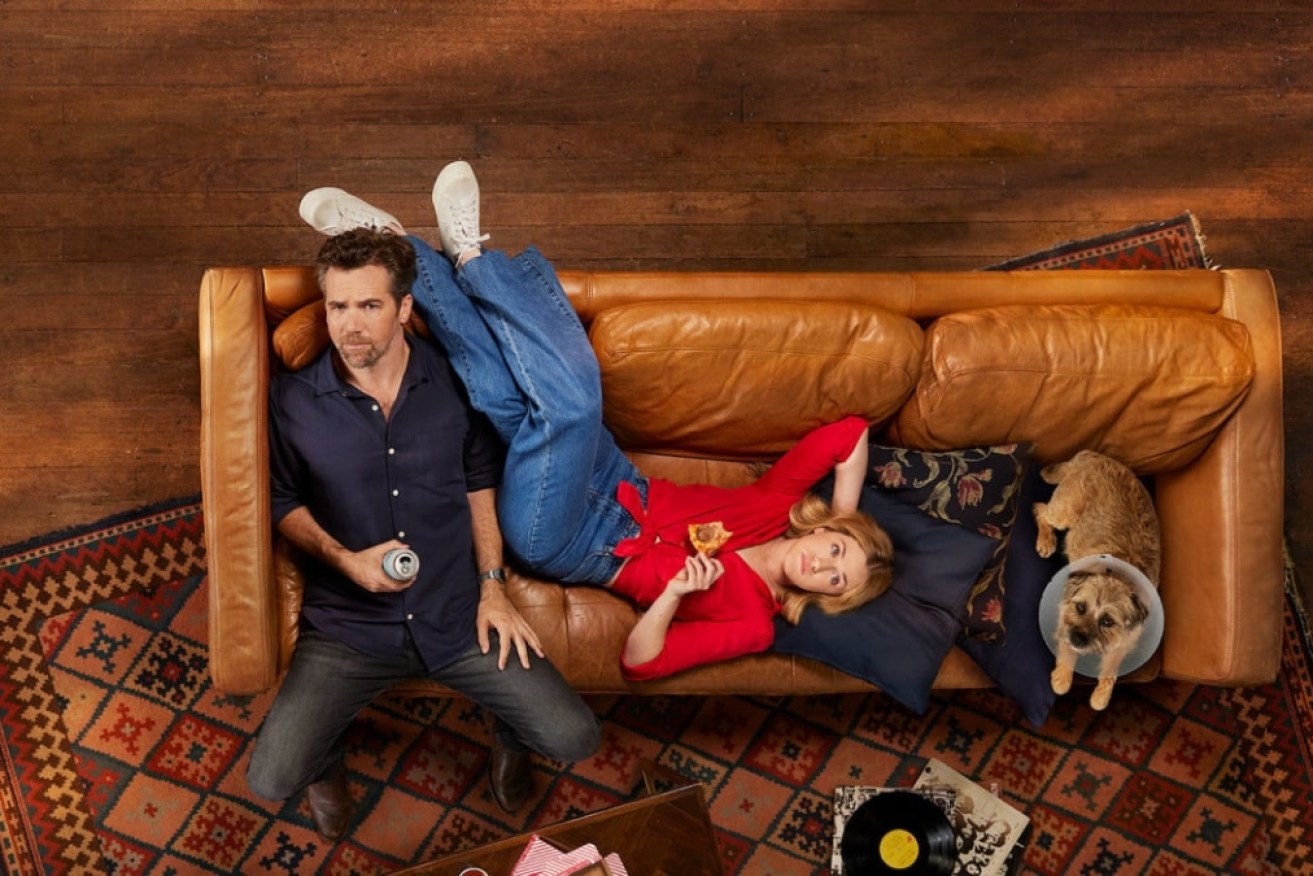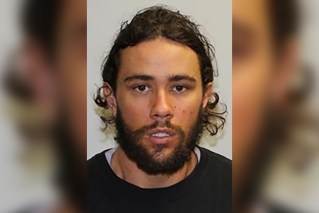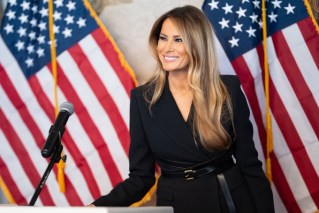Colin from Accounts proves success of local stories as streaming companies face quotas


Colin from Accounts has been added to the growing stable of Australian streaming success stories. Photo: BBC/Paramount/CBS Studios
After winning three awards at this year’s Logies, Colin from Accounts is getting a second season.
With local production quotas looming for streaming companies, experts warn future projects should take a cue from the show and focus on Australian stories.
Colin from Accounts, written by and starring real-life couple Patrick Brammall and Harriet Dyer, was originally commissioned by Foxtel and debuted in December (Binge is owned by Streamotion, a subsidiary of the Foxtel Group).

Harriet Dyer and Patrick Brammall are the brains and the faces of the hit Australian show. Photo: Binge
The first episode was quick to grab the audience’s attention, having Ashley (Dyer) flash her breast at Gordon (Brammall) as a thank you for letting her cross the road – causing the ogling Gordon to hit a dog with his car, and setting into motion an unconventional Aussie love story.
Taking inspiration from the likes of British sitcom Catastrophe and American comedy-drama series Girls, the show featured graphic gags (think human poo being thrown out of a window), but Colin from Accounts also drew praise and international fans for its honest portrayal of conversations, relationships and women.
Binge was unable to share data on viewership with TND, but a spokesperson said the show ranks as the No.1 Australian drama in the history of the Foxtel Group.
Despite the show’s success, a second season seemed up in the air as the creative couple behind the series tried to figure out if they could go ahead with writing amid the Writers Guild of America’s ongoing strike (Brammall is a WGA member).
But on Sunday, Binge confirmed Dyer and Brammall will return to write, star and executive produce season two.
Local quotas coming to streaming
Colin from Accounts is the latest Australian exclusive-to-streaming product to make an impact both at home and overseas, following the likes of Netflix’s Heartbreak High.
The success of these locally-made projects would come as a relief to streaming platforms, who will soon have to fill a government-imposed quota of Australian content, with details to be revealed by the end of the year and regulation expected to be in place by July 1, 2024.
Streaming platforms are already increasing local production ahead of the introduction of the quotes, with Prime Video’s revival of Neighbours likely related to the issue.
Five subscription video on demand (SVOD) providers (Prime Video, Disney, Netflix, Paramount+ and Stan) spent $335.1 million in the 2021-22 financial year on 718 Australian programs – up by $156.2 million on the previous financial year.

Last year’s Heartbreak High reboot looked at Australian issues through a youthful lens. Photo: Netflix
Marc C-Scott, Victoria University senior lecturer in screen media, said the successes of shows like Colin from Accounts, Heartbreak High, and even ABC’s smash-hit children’s show Bluey, prove Australian content can have major success both at home and overseas.
Although this might bode well for Australian content to be produced under the conditions of the government’s new national cultural policy, Revive, he said the bigger issue is defining what Australian content is.
“Obviously, we want to have a vibrant and feasible Australian production industry, but also on top of that, we want to be telling Australian stories,” Dr C-Scott said.
“The issue is [the quota] doesn’t stipulate what Australian content is. It’s more based around production, and who’s involved in the production, rather than the actual production itself.
“So for example, Heartbreak High … when you watch it, you can see it’s an Australian program and has that Australian flavour … let’s actually tell Australian stories … we are multicultural, and there are plenty of Australian stories that can be told by the Australian industry, and they can be successful for a global audience.”
Double standard slammed
The onus shouldn’t entirely be on streaming platforms to prop up the local production industry, said Anna Potter, University of the Sunshine Coast associate professor in communication.
Instead, that responsibility should be shared by commercial television broadcasters.
In April, the government indicated streaming companies could be forced to spend up to 20 per cent of the money they make locally on new Australian programs.
Currently, commercial broadcasters are required to provide 55 per cent overall Australian content on their primary channels between 6am and midnight – but there is no regulation over how much of their income they must invest in new local content.

Arts Minister Tony Burke is pushing for streaming platforms to meet local content obligations. Photo: AAP
“From a policy point of view, local content obligations were always about safeguarding Australian stories and ensuring Australians saw their lives represented and reflected back to them on television … relying on US-based streamers to deliver those cultural policy outcomes just seems quite naive,” Dr Potter said.
Role of national broadcasters
“[International streaming companies] think globally because they’re global services. So they don’t have a huge incentive to create authentic Australian stories – sometimes they do [create those stories], but they’re not really incentivised to do that.
“Whereas national broadcasters who are interested in the national audience are more likely to commission stories or drama that is likely to be more relevant to Australian audiences.”
Although local commercial broadcasters are required to air Australian content for more than half of the day on their main channels, Dr Potter said that can include anything from sport to reality TV.
Not exactly the sort of creative content that the Australian screen industry and audiences are looking for.
“If you’re going to seriously consider putting local content obligations on streamers, you should be putting local content obligations on commercial broadcasters,” she said.
“Cultural policy was always about securing cultural objectives that would benefit Australians, and those are primarily best met by national broadcasters, not global streaming services whose business models are still very much in flux.”








